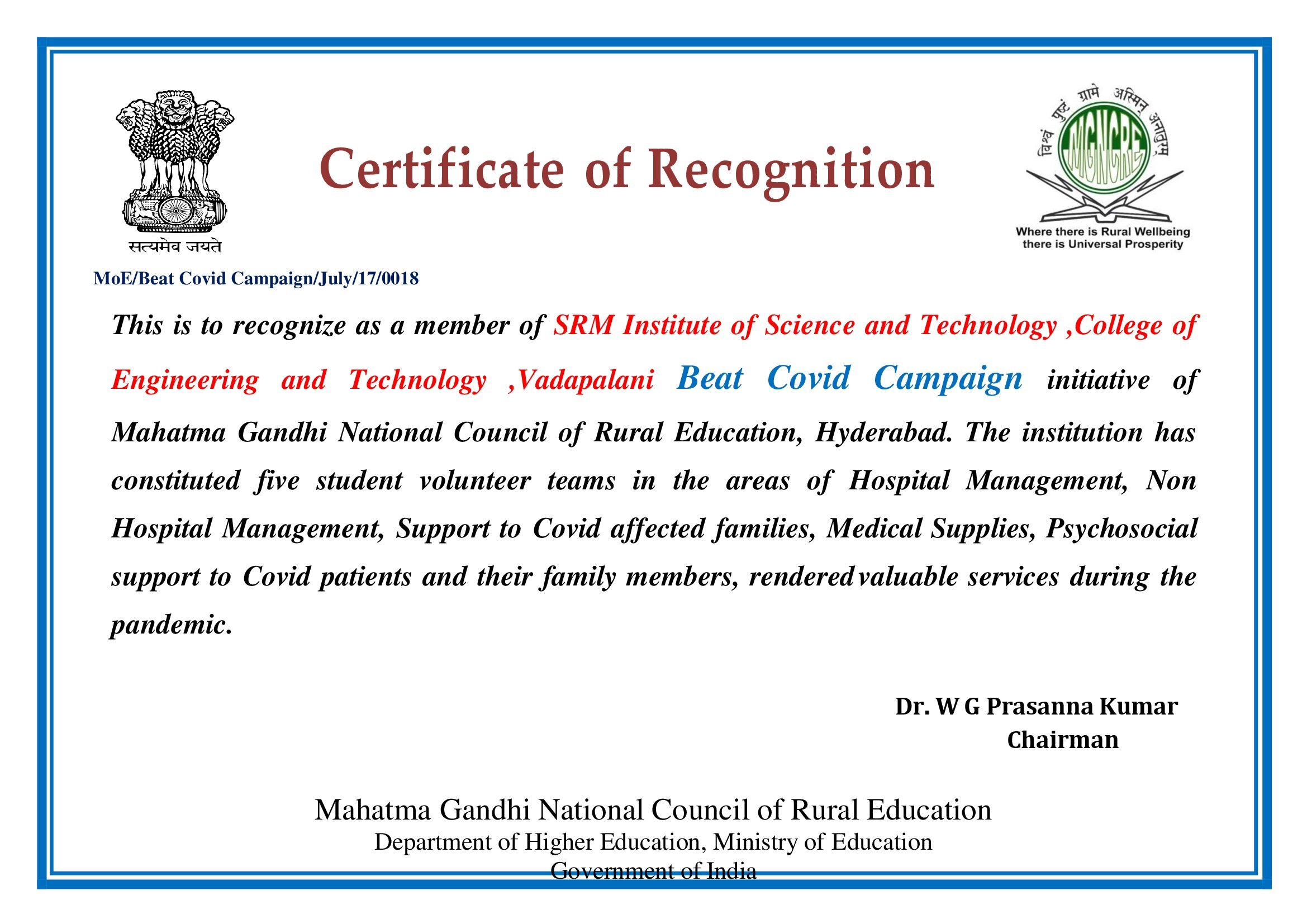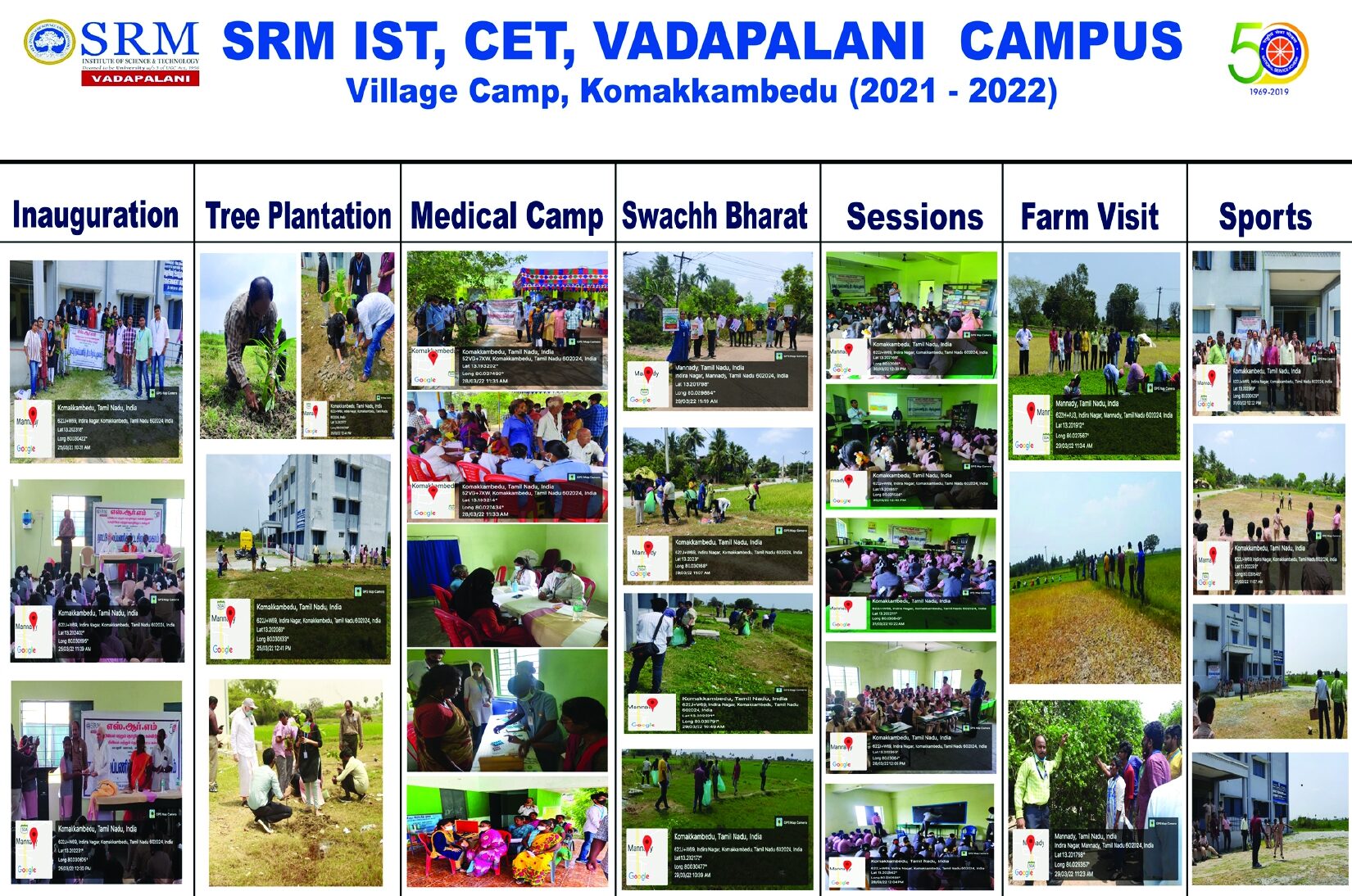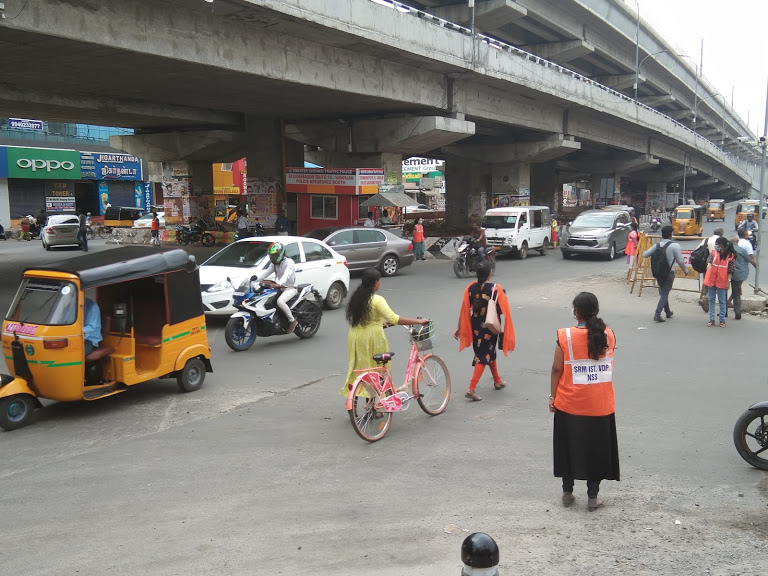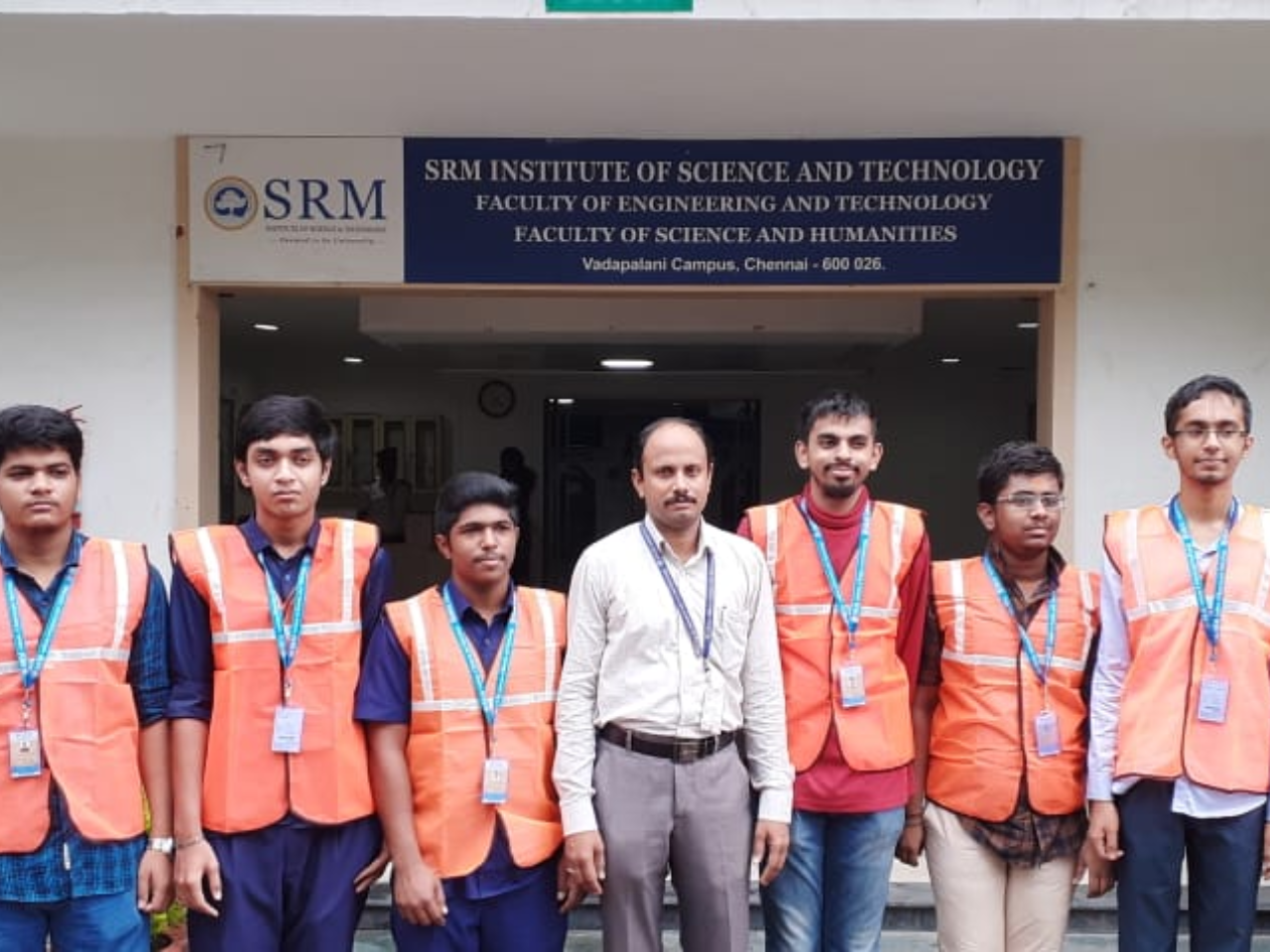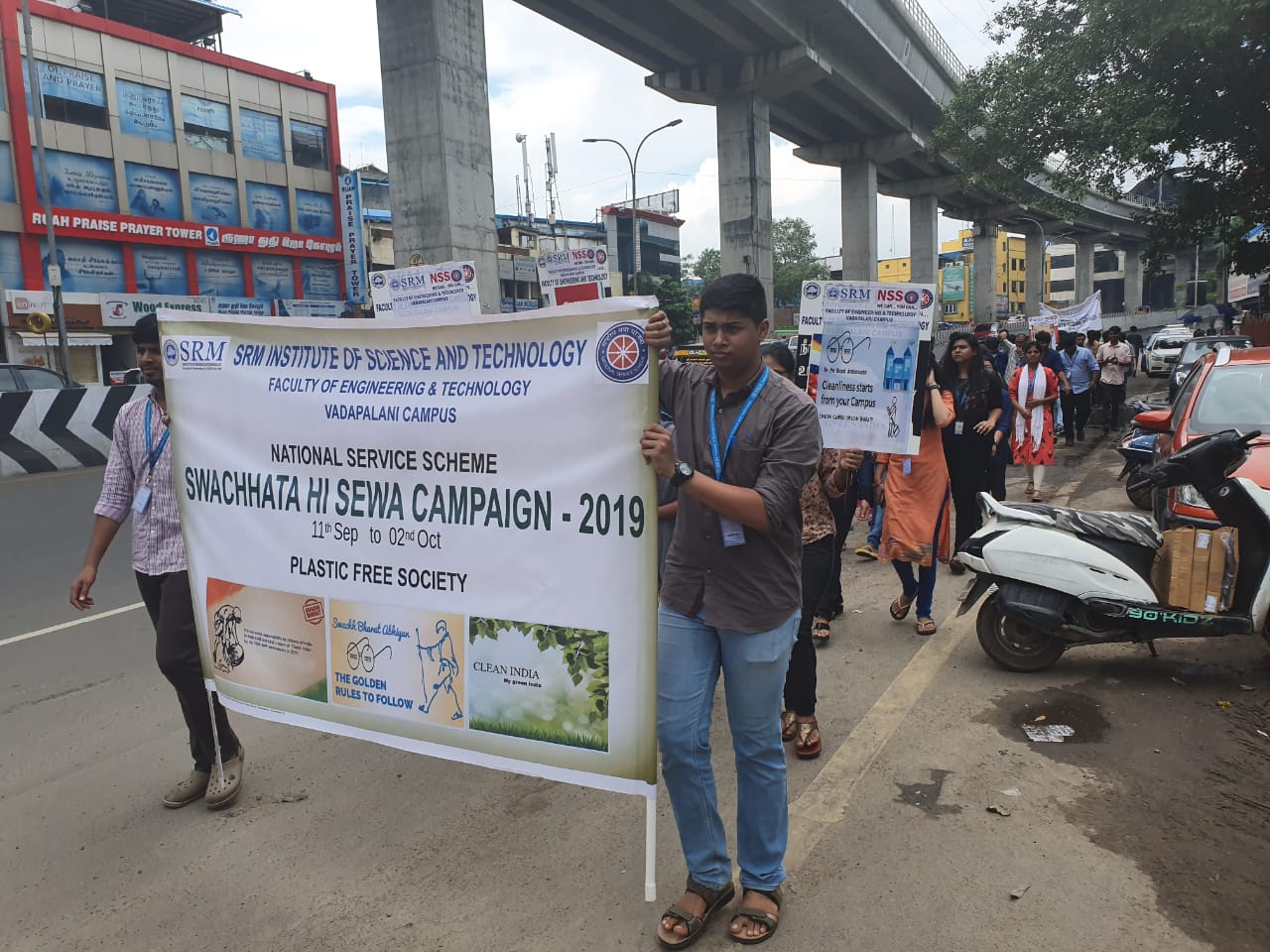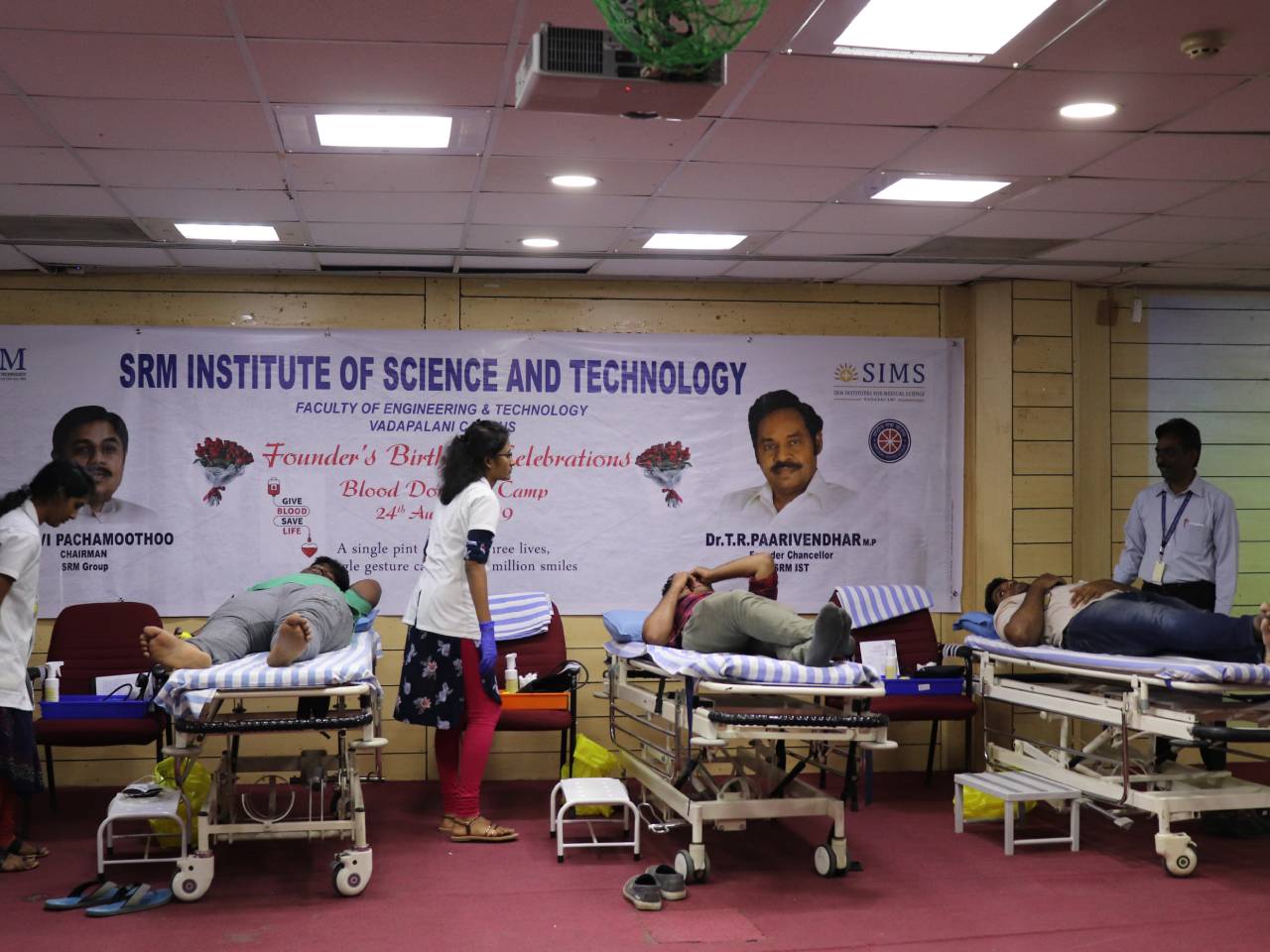Serving the community
Dr. S. Kannan, department of physics, is the programme coordinator. Blood donation is a regular feature of the city campus. There are many opportunities at SRMIST Vadapalani for students to engage in service to the community—through healthcare camps, blood donation, advocacy campaigns or working with schools for the underprivileged. Students are encouraged to take up community service through NSS or join any of the community service projects to give back to the community.
The main objectives of National Service Scheme (NSS) are:-
- Understand the community in which they work.
- Understand themselves in relation to their community.
- Identify the needs and problems of the community and involve them in problem-solving.
- Develop among themselves a sense of social and civic responsibility.
- Utilise their knowledge to find practical solutions to individual and community problems.
- Develop the competence required for group living and sharing of responsibilities.
- Gain skills in mobilising community participation.
- Acquire leadership qualities and democratic attitudes.
- Develop capacity to meet emergencies and natural disasters and
- Practice national integration and social harmony.
Badge
A symbol is embossed on the badge. The eight bars on the wheel represent the 24 hours of a day. The red colour indicates that the volunteer is full of young blood that is lively, active, energetic and full of high spirit. The navy blue colour indicates the cosmos of which the NSS is a tiny part, ready to contribute its share for the welfare of mankind.
The National Service Scheme covers students at the level of higher education. Thus, the administrative structures of higher education have the responsibility of looking after NSS and its implementation at the college, school, or university level. The successful functioning of the NSS cell at the university level will give impetus to the proper implementation of NSS at the unit level.
Annual Report
SRMIST Vadapalani is known for its excellence not only in academics but also in community services. Our NSS volunteers conduct programmes such as residential camps, assisting the police patrol to control the traffic, awareness programmes on substance addiction, the purpose of wearing a helmet, blood donation camps, tree plantations, swachh bharat, various rallies and musical therapy for cancer patients. The NSS volunteers are active, and they organise innumerable activities every semester. They learn the important aspect of being fruitful to the needy because service to the people who are in need is a divine quality of any individual.






